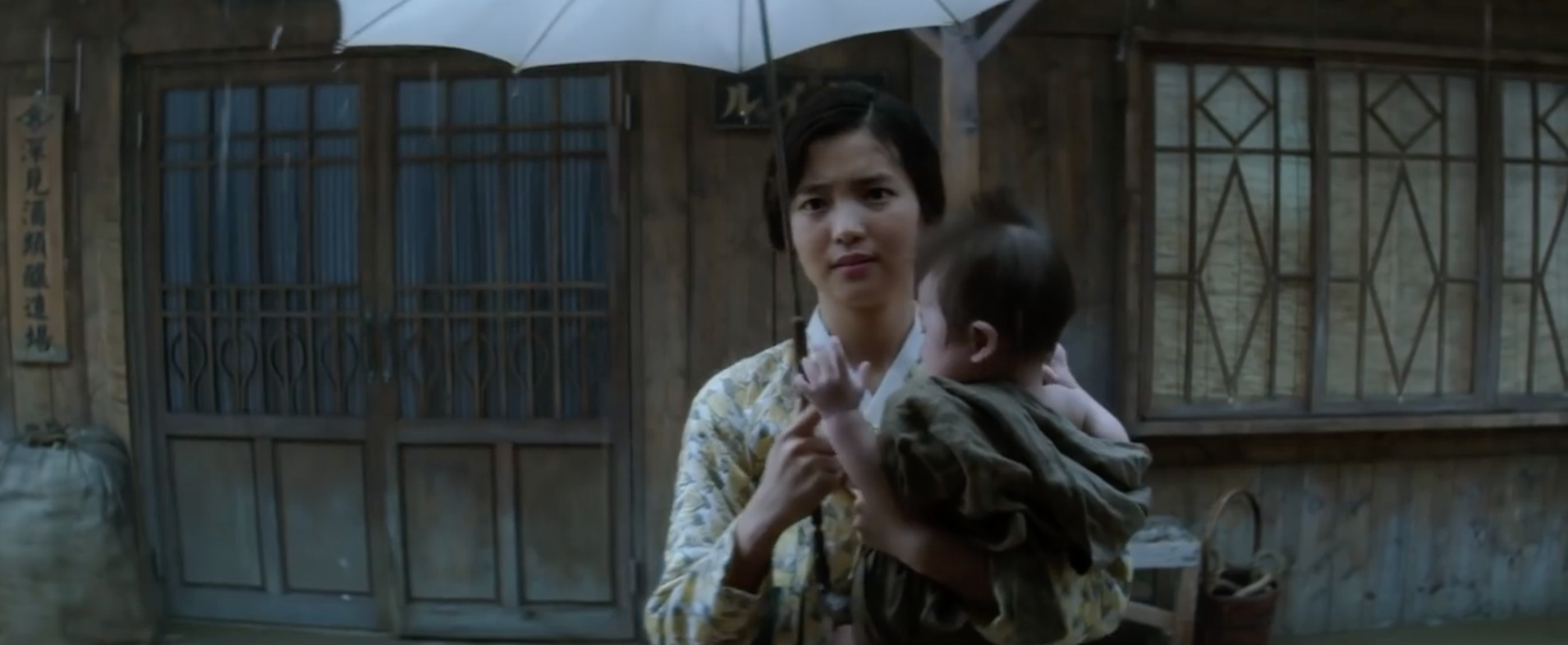Please, don’t take your kids to see this. Do not see this for a first date.
I haven’t seen Oldboy, which is Handmaiden director Park Chan-wook’s first film. I heard about it. It made a good long splash, but I expect this to live a longer life. That’s a genre film. This pulls together every genre to create a tapestry I can only relate to Shakespeare’s work. You want betrayal? Look no further. You want sex? Look no further. You want commentary on class? Here you go. You want heroines? Villains? Sage older figures? Tarantino violence? A masterclass in cinematography? Storytelling? Seriously, here you go.
Park Chan-wook’s attention to detail permeates every single aspect of this film for the better. In his review on Roger Ebert’s site, Matt Zoller Seitz says Chan-wook made a film about storytelling, and I agree. The Handmaiden deconstructs storytelling.
A young, poor Korean woman, Sook-hee (Tae-ri Kim), conspires with Count Fujiawara (Jung-woo Ha) , a friend of her family, to take a Japanese Lady’s fortune — Lady Hideko (Min-hee Kim). Sook-hee poses as the titular handmaiden. She will convince Lady Hideko that she should marry Count Fujiwara. When they are married, Sook-hee and Count Fujiwara will drive her mad, commit her to an asylum, and split her money. This is not so easy, as Lady Hideko is endearing, both in her naivety and complimentary warm personality. Sook-hee falls for Lady Hideko in a way she didn’t expect, and then when she realizes, she spends the time she should pretending she doesn’t — and then succumbs to it. When she finally has sex with Lady Hideko, it’s under the guise of “preparing her” for her marriage to the Count. This is graphic sex. There’s a reason this is not just “thriller” or “drama”, it’s an “erotic thriller”, an “erotic drama”. The sex goes on for a long time. Even the suggestive scenes go on for a long time, but it’s all for a reason. We don’t miss that there’s something between these women, and they don’t miss it either, so when it takes them weeks to finally act on it, we know this is something they’ve considered at length, and it creates an importance there might not have been if they had immediately headed to bed.
The truth is, Sook-hee and the Count don’t even like each other, so when each deviates from the agreed-upon plan because of how Lady Hideko makes them feel, they grow angry, and they meddle in the other’s affairs. They know each other’s secret, that their positions are fake, and it becomes a kind of stalemate — and yet it plods along. They move begrudgingly forward like statues as Lady Hideko herself struggles to understand why so much of her life changed when these two entered into it.
Yeong-wook Jo’s score provides the right kind of melodramatic melodies to cement its story tone as long-lost, historic legend. Its structure, how it switches narrators, is how Chan-wook deconstructs one period of time to create three stories.
Chan-wook and Chung-hoon Chung’s camera direction is as dynamic as the actors’ performances, and feels as confident and inevitable as the story it helps tell. By this I mean all of it feels inevitable. As each piece of the puzzle falls into place, you might think “of course”, or you might not think at all and experience the movie as it happens. At the same time, with every focus pull, single-take, montage, and cut, you wonder how else he could’ve done it, and you wonder because it’s good.






